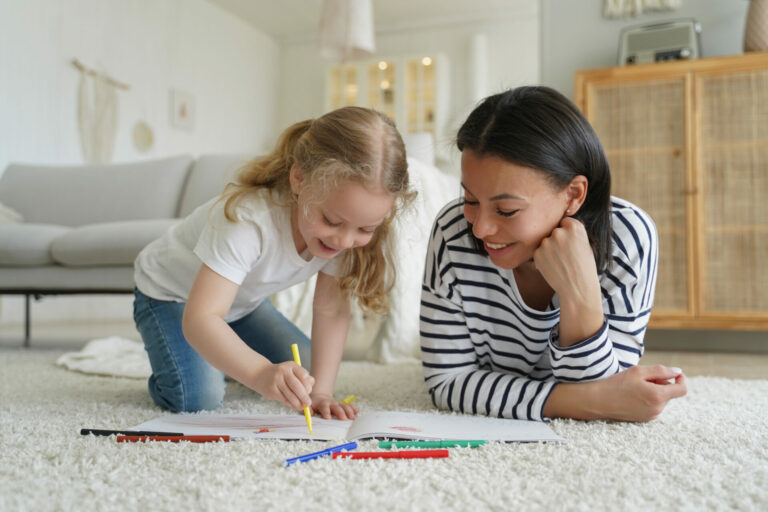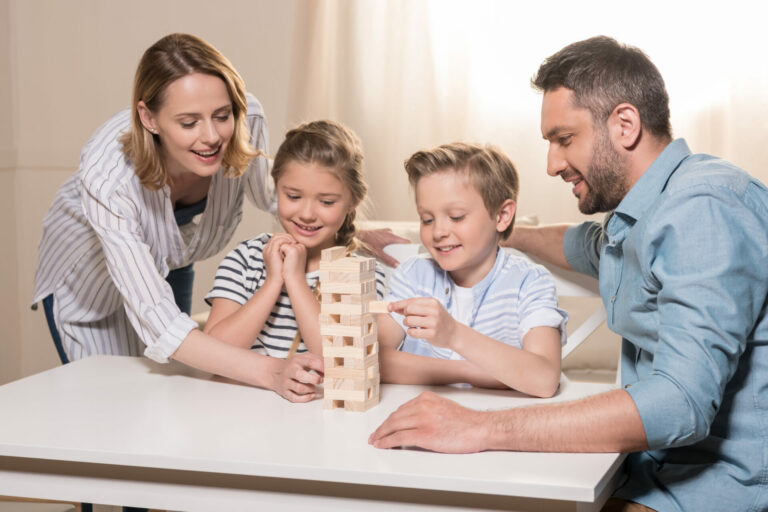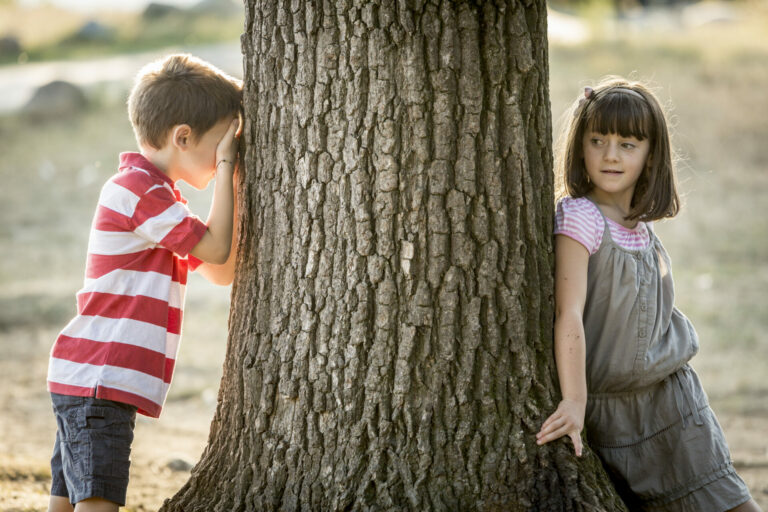40 Coping Skills to Help Kids Perform at Their Best
By Sarah Earles, MS, LPC, NCC | December 29, 2023
Coping skills. It’s a term often thrown around, but what does it mean? How can coping skills help children? What are some ideas to try?
Coping skills go by various names: coping, coping mechanisms, coping strategies, etc. In sum, they are the methods used to cope with, adjust to, or tolerate difficult circumstances (Cleveland Clinic, 2020). Coping skills allow individuals to take some control over their situation by responding to circumstances in ways that improve functioning and promote resilience (Johns Hopkins Medicine, n.d.). Coping skills help to manage emotions and stressors that emerge with challenging circumstances (Strong 4 Life, n.d.). Coping skills can be positive, negative, or neutral (Bailey, 2022). There is no age limit for coping skills. Everyone needs them!
What are some examples of coping skills? Positive coping skills can include asking for help, journaling, and deep breathing (Bailey, 2022). Problem solving, seeking supportive relationships, and asking for spiritual guidance are others (Cleveland Clinic, 2020). Negative (unhelpful or harmful) coping skills could include avoiding the positive, catastrophizing, isolating, comparison, overreaction, and worry (Wiest, 2018). Everyone practices both kinds of skills. The goal is to progressively use more healthy skills, more often, in order to promote better life.
But what about children? Children primarily learn coping skills from adults. They watch their parents and caregivers cope with difficult circumstances and they follow suit (The Pediatric Mental Health Institute, n.d.). They model the behaviors of their caregivers (Klein-Baer, 2022). As they grow older, children may also learn coping skills in social settings (Better Kid Care, 2021). Hopefully, the children acquire a wide variety of skills from their caregiving and social settings in order to have many resources from which to draw when life gets difficult.
Positive coping skills benefit children in the same ways they benefit adults. They are helpful tools that can be used when children are working through hard situations. Coping skills aid in processing thoughts and feelings. They facilitate regulation (Compas et al., 2014). They can help children perform at their best, thinking through behaviors rather than acting impulsively (Klein-Baer, 2022). They can promote healthy family and social relationships (Halloran, 2016). Growth in coping skills is part of the normal developmental process towards healthy adult life.
What are some coping skills to try? Here are 40:
- Act things out (The OT Toolbox, 2020).
- Bake (The Pediatric Mental Health Institute, n.d.).
- Bathe.
- Blow bubbles.
- Bounce a ball (Strong 4 Life, n.d.).
- Brush one’s hair.
- Chew gum.
- Count backward from 100.
- Cuddle with a pet (Strong 4 Life, n.d.).
- Dance (Strong 4 Life, n.d.)
- Do the butterfly hug (Gould, 2022).
- Draw.
- Drink a cold drink.
- Exercise (Strong 4 Life, n.d.).
- Facetime a supportive person (for kids with access to phone) (Strong 4 Life, n.d.).
- Go for a walk.
- Hug oneself (Huebner, 2008).
- Hula hoop (Strong 4 Life, n.d.).
- Jump rope (Strong 4 Life, n.d.).
- Lay down for a nap.
- Listen to music (Strong 4 Life, n.d.).
- Look at pictures (Strong 4 Life, n.d.).
- Meditate (The Pediatric Mental Health Institute, n.d.).
- Play a game.
- Practice 5-4-3-2-1 mindfulness (Pikorn, n.d.).
- Process using a voice memo (for kids with access to phones).
- Progressively relax muscles (Conrad Stoppler, 2022).
- Put together a puzzle (The Pediatric Mental Health Institute, n.d.).
- Read a book.
- Ride a bike.
- Rub on lotion.
- Run.
- Sniff a good smell.
- Squeeze a stress ball (Strong 4 Life, n.d.).
- Stretch (Huebner, 2008).
- Take deep breaths.
- Think positive thoughts (Strong 4 Life, n.d.).
- Use a fidget (The OT Toolbox, 2020).
- Watch a funny video.
- Write.
Will these skills work for all children? Certainly not! But trying to practice a variety of skills will help children learn which skills work best for them. Then they can start to use them when things are difficult, to better themselves, their families, and the world.
Coping skills. It’s a term often thrown around, but what does it mean? How can coping skills help children? What are some ideas to try?
Coping skills go by various names: coping, coping mechanisms, coping strategies, etc. In sum, they are the methods used to cope with, adjust to, or tolerate difficult circumstances (Cleveland Clinic, 2020). Coping skills allow individuals to take some control over their situation by responding to circumstances in ways that improve functioning and promote resilience (Johns Hopkins Medicine, n.d.). Coping skills help to manage emotions and stressors that emerge with challenging circumstances (Strong 4 Life, n.d.). Coping skills can be positive, negative, or neutral (Bailey, 2022). There is no age limit for coping skills. Everyone needs them!
What are some examples of coping skills? Positive coping skills can include asking for help, journaling, and deep breathing (Bailey, 2022). Problem solving, seeking supportive relationships, and asking for spiritual guidance are others (Cleveland Clinic, 2020). Negative (unhelpful or harmful) coping skills could include avoiding the positive, catastrophizing, isolating, comparison, overreaction, and worry (Wiest, 2018). Everyone practices both kinds of skills. The goal is to progressively use more healthy skills, more often, in order to promote better life.
But what about children? Children primarily learn coping skills from adults. They watch their parents and caregivers cope with difficult circumstances and they follow suit (The Pediatric Mental Health Institute, n.d.). They model the behaviors of their caregivers (Klein-Baer, 2022). As they grow older, children may also learn coping skills in social settings (Better Kid Care, 2021). Hopefully, the children acquire a wide variety of skills from their caregiving and social settings in order to have many resources from which to draw when life gets difficult.
Positive coping skills benefit children in the same ways they benefit adults. They are helpful tools that can be used when children are working through hard situations. Coping skills aid in processing thoughts and feelings. They facilitate regulation (Compas et al., 2014). They can help children perform at their best, thinking through behaviors rather than acting impulsively (Klein-Baer, 2022). They can promote healthy family and social relationships (Halloran, 2016). Growth in coping skills is part of the normal developmental process towards healthy adult life.
What are some coping skills to try? Here are 40:
- Act things out (The OT Toolbox, 2020).
- Bake (The Pediatric Mental Health Institute, n.d.).
- Bathe.
- Blow bubbles.
- Bounce a ball (Strong 4 Life, n.d.).
- Brush one’s hair.
- Chew gum.
- Count backward from 100.
- Cuddle with a pet (Strong 4 Life, n.d.).
- Dance (Strong 4 Life, n.d.)
- Do the butterfly hug (Gould, 2022).
- Draw.
- Drink a cold drink.
- Exercise (Strong 4 Life, n.d.).
- Facetime a supportive person (for kids with access to phone) (Strong 4 Life, n.d.).
- Go for a walk.
- Hug oneself (Huebner, 2008).
- Hula hoop (Strong 4 Life, n.d.).
- Jump rope (Strong 4 Life, n.d.).
- Lay down for a nap.
- Listen to music (Strong 4 Life, n.d.).
- Look at pictures (Strong 4 Life, n.d.).
- Meditate (The Pediatric Mental Health Institute, n.d.).
- Play a game.
- Practice 5-4-3-2-1 mindfulness (Pikorn, n.d.).
- Process using a voice memo (for kids with access to phones).
- Progressively relax muscles (Conrad Stoppler, 2022).
- Put together a puzzle (The Pediatric Mental Health Institute, n.d.).
- Read a book.
- Ride a bike.
- Rub on lotion.
- Run.
- Sniff a good smell.
- Squeeze a stress ball (Strong 4 Life, n.d.).
- Stretch (Huebner, 2008).
- Take deep breaths.
- Think positive thoughts (Strong 4 Life, n.d.).
- Use a fidget (The OT Toolbox, 2020).
- Watch a funny video.
- Write.
Will these skills work for all children? Certainly not! But trying to practice a variety of skills will help children learn which skills work best for them. Then they can start to use them when things are difficult, to better themselves, their families, and the world.
References
Bailey, A. (2022, October 18). Coping mechanisms: Everything you need to know. VeryWell Health. https://www.verywellhealth.com/coping-mechanisms-5272135
Better Kid Care. (2021, January 28). Promoting coping skills. PennState Extension. https://extension.psu.edu/programs/betterkidcare/news/promoting-coping-skills
Cleveland Clinic. (2020, November 24). Stress: Coping with life’s stressors. https://my.clevelandclinic.org/health/articles/6392-stress-coping-with-lifes-stressors
Compas, B. E., Jaser, S. S., Dunbar, J. P., Watson, K. H., Bettis, A. H., Gruhn, M. A., & Williams, E. K. (2014). Coping and Emotion Regulation from Childhood to Early Adulthood: Points of Convergence and Divergence. Australian journal of psychology, 66(2), 71–81. https://doi.org/10.1111/ajpy.12043
Conrad SToppler, M. (2022, January 22). Progressive muscle relaxation for stress and insomnia. WebMD. https://www.webmd.com/sleep-disorders/muscle-relaxation-for-stress-insomnia
Gould, W. R. (2022, April 12). Butterfly hugs, rainbow breathing and more ways to combat stress in minutes. Today. https://www.today.com/health/mind-body/butterfly-hug-rainbow-breathing-relieve-stress-anxiety-rcna24055
Halloran, J. (2016, January 10). Welcome to coping skills for kids! Coping skills for kids. https://copingskillsforkids.com/blog/welcome-to-coping-skills-for-kids
Huebner, D. (2008). What to do when your temper flares. Magination press.
Johns Hopkins Medicine. (n.d.). Develop a battery of coping skills. https://www.hopkinsmedicine.org/about/community-health/johns-hopkins-bayview/services/called-to-care/develop-battery-coping-skills
Klein-Baer, R. (2022, October 18). How to model healthy coping skills. Child Mind Institute. https://childmind.org/article/how-to-model-healthy-coping-skills/
The OT Toolbox. (2020, July 19). Coping strategies for kids. https://www.theottoolbox.com/sensory-coping-strategies-for-kids/
Pikorn, I. (n.d.). The 5-4-3-2-1 grounding technique: Manage anxiety by anchoring in the present. Insight Timer. https://insighttimer.com/blog/54321-grounding-technique/
The Pediatric Mental Health Institute. (n.d.). Pediatric coping skills. Children’s Hospital Colorado. https://www.childrenscolorado.org/doctors-and-departments/departments/psych/mental-health-professional-resources/primary-care-articles/pediatric-coping-skills/
Strong 4 Life. (n.d.). Healthy coping strategies for kids and teens. https://www.strong4life.com/en/emotional-wellness/coping/healthy-coping-strategies-for-kids
Wiest, B. (2018, November 13). 7 unhealthy coping mechanism that are secretly wreaking havoc on your psyche. Forbes. https://www.forbes.com/sites/briannawiest/2018/11/13/7-unhealthy-coping-mechanisms-that-are-secretly-wreaking-havoc-on-your-psyche/?sh=315d965f4575
References
Bailey, A. (2022, October 18). Coping mechanisms: Everything you need to know. VeryWell Health. https://www.verywellhealth.com/coping-mechanisms-5272135
Better Kid Care. (2021, January 28). Promoting coping skills. PennState Extension. https://extension.psu.edu/programs/ betterkidcare/news/promoting-coping-skills
Cleveland Clinic. (2020, November 24). Stress: Coping with life’s stressors. https://my.clevelandclinic.org/health/ articles/6392-stress-coping-with-lifes-stressors
Compas, B. E., Jaser, S. S., Dunbar, J. P., Watson, K. H., Bettis, A. H., Gruhn, M. A., & Williams, E. K. (2014). Coping and Emotion Regulation from Childhood to Early Adulthood: Points of Convergence and Divergence. Australian journal of psychology, 66(2), 71–81. https://doi.org/10.1111/ajpy.12043
Conrad SToppler, M. (2022, January 22). Progressive muscle relaxation for stress and insomnia. WebMD. https://www.webmd.com/sleep-disorders/muscle-relaxation-for-stress-insomnia
Gould, W. R. (2022, April 12). Butterfly hugs, rainbow breathing and more ways to combat stress in minutes. Today. https://www.today.com/health/mind-body/butterfly-hug-rainbow-breathing-relieve-stress-anxiety-rcna24055
Halloran, J. (2016, January 10). Welcome to coping skills for kids! Coping skills for kids. https://copingskillsforkids.com/blog/ welcome-to-coping-skills-for-kids
Huebner, D. (2008). What to do when your temper flares. Magination press.
Johns Hopkins Medicine. (n.d.). Develop a battery of coping skills. https://www.hopkinsmedicine.org/about/ community-health/johns-hopkins-bayview/services/called-to-care/develop-battery-coping-skills
Klein-Baer, R. (2022, October 18). How to model healthy coping skills. Child Mind Institute. https://childmind.org/article/how-to-model-healthy-coping-skills/
The OT Toolbox. (2020, July 19). Coping strategies for kids. https://www.theottoolbox.com/sensory-coping-strategies-for-kids/
Pikorn, I. (n.d.). The 5-4-3-2-1 grounding technique: Manage anxiety by anchoring in the present. Insight Timer. https://insighttimer.com/blog/54321-grounding-technique/
The Pediatric Mental Health Institute. (n.d.). Pediatric coping skills. Children’s Hospital Colorado. https://www.childrenscolorado.org/ doctors-and-departments/departments/psych/mental-health-professional-resources/primary-care-articles/pediatric-coping-skills/
Strong 4 Life. (n.d.). Healthy coping strategies for kids and teens. https://www.strong4life.com/en/ emotional-wellness/coping/healthy-coping-strategies-for-kids
Wiest, B. (2018, November 13). 7 unhealthy coping mechanism that are secretly wreaking havoc on your psyche. Forbes. https://www.forbes.com/sites/ briannawiest/2018/11/13/7-unhealthy-coping-mechanisms-that-are-secretly-wreaking-havoc-on-your-psyche/?sh=315d965f4575




